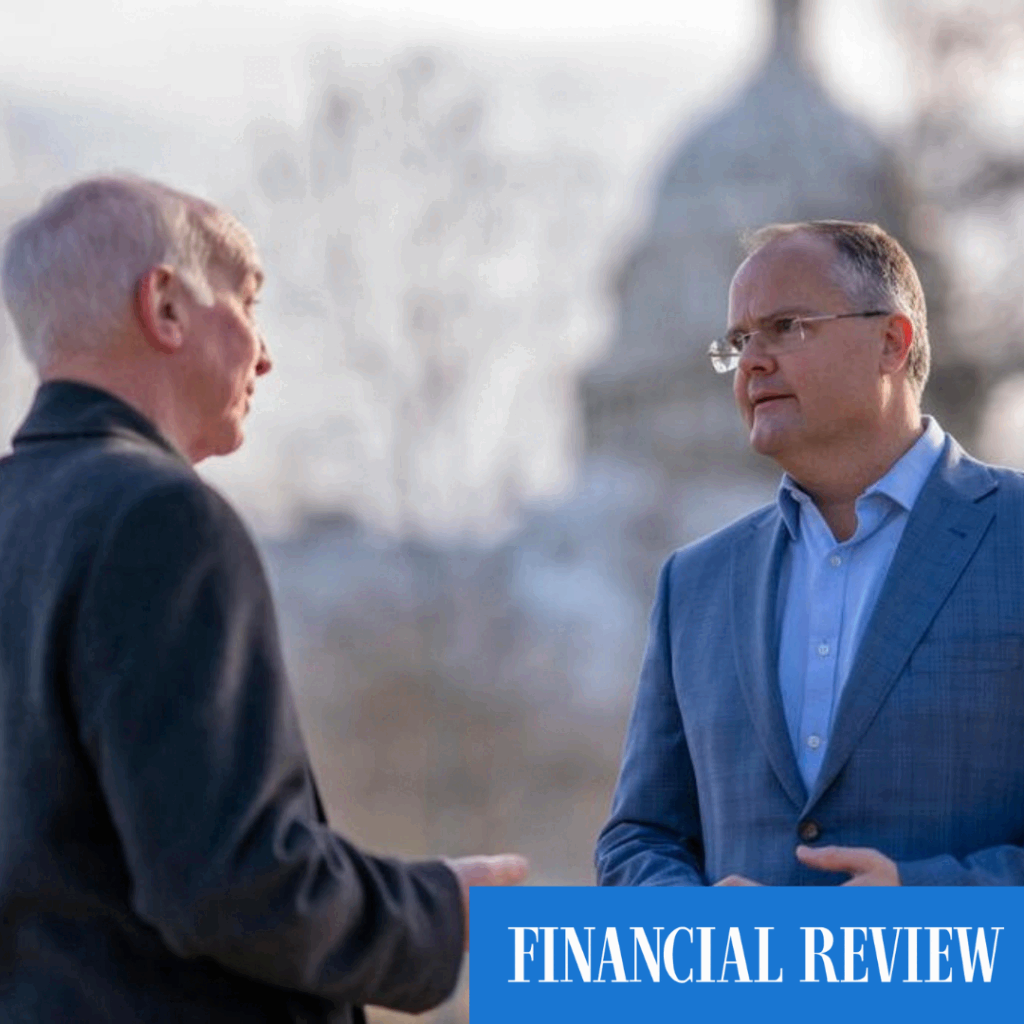Originally published in the Australian Financial Review, 30 January 2023
Washington | The AUKUS military pact between Australia, the United States and the United Kingdom should be used to kick-start a debate on nuclear energy in Australia, federal opposition energy spokesman Ted O’Brien has been telling members of Congress on a mostly self-funded tour of the US.
As the Albanese and Biden administrations finalise plans for sharing nuclear-powered submarine intelligence, Mr O’Brien, a noted China hawk, met with Democrat congressmen Joe Courtney, chairman of the Friends of Australia Caucus, to learn how Australia can get comfortable with nuclear power.
“Adopting nuclear-propelled submarines under the AUKUS deal takes our engagement with nuclear technology to a new level,” Mr O’Brien told The Australian Financial Review in Washington.
“As AUKUS unfolds, a question we need to ask ourselves is whether it’s also time for Australia to adopt next-generation, zero emissions nuclear energy.”
Mr O’Brien has mostly self-funded a tour across several US states, including Wyoming, where billionaires Bill Gates and Warren Buffett have been investing in small nuclear reactors. He will travel to Ontario, Canada, to study the growing use of nuclear energy in that province.
He said that as Australian companies participated in the development of nuclear-powered submarines, both countries should consider the potential economic gains of having the private sector develop nuclear energy technologies as well.
“Beyond the strategic value of nuclear-propelled submarines, there also lies economic opportunity – Australian companies offer world-class capability, along with experience in participating in highly sensitive areas of a military industrial complex,” Mr O’Brien said.
US nuclear energy development
“In assessing the prospect for advanced nuclear reactors to generate clean, affordable and reliable energy in Australia, let’s not underestimate the synergies that also exist between nuclear-propelled subs and nuclear power plants.
“The Australian-American relationship is as close and enduring a partnership the world has ever seen, and few understand this better than Congressman Joe Courtney.”
While Mr Courtney did not specifically comment about Australia, he has been a strong supporter of nuclear energy development in the US.
When Mr Courtney voted for the Biden administration’s Inflation Reduction Act last year, he highlighted in his approval statement provisions worth $US2 billion ($2.8 billion) in the legislation for the acceleration of breakthrough energy research in nuclear technologies.
Almost 40 per cent of Mr Courtney’s home state of Connecticut is powered by nuclear energy.
Nuclear experts such as Henry Sokolski, executive director of the Non-proliferation Policy Education Centre, believe the AUKUS agreement “already has” lifted the discussion about nuclear energy in Australia, but that cost will be the problem.
“The pro-nuclear crowd in Australia thinks nuclear energy makes sense, no matter what it costs. The AUKUS nuclear submarine project also seems to garner support largely independent of what it costs,” he said.
“The only difference is the [submarine] project is a unique way to provide for Australia’s national defence, which does not require economic justification; nuclear electricity is not.”
Defence Minister Richard Marles plans a last-minute visit to the Pentagon later this week, following so-called AUKMIN discussions in London with his British counterpart. A review of the AUKUS agreement is due out within a few weeks.
